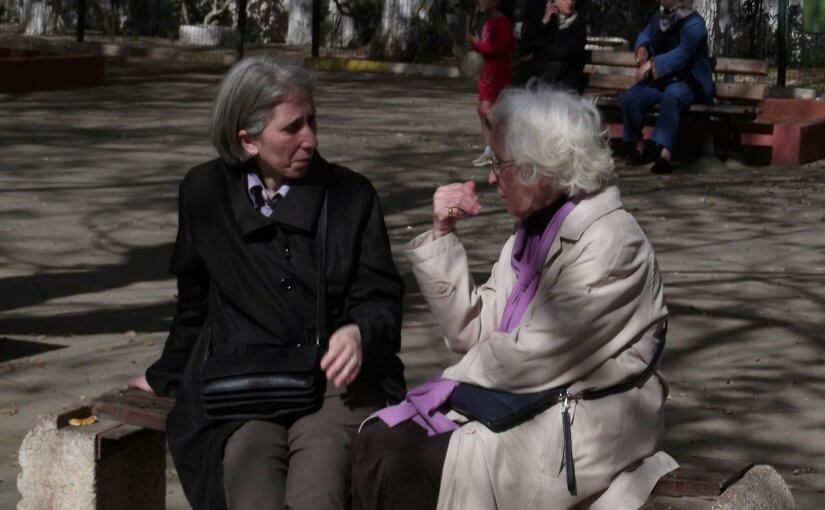The question arrives differently for every family. Maybe it’s after your mother fell twice in one week. Perhaps it’s when you realized your father hasn’t been taking his medications correctly for months. Or it might be the growing anxiety you feel each time you leave after a visit, wondering if they’ll be okay until you return.
The decision between assisted living and in-home care is rarely clear-cut, and it’s almost always emotional. But approaching it with a framework—looking at safety, finances, social needs, and available support—can help families make choices that honor both practical realities and personal values.
Understanding Your Options
Before diving into the decision framework, let’s clarify what we mean by each option.
In-home care allows seniors to remain in their own homes while receiving varying levels of support—from a few hours of help per week to round-the-clock care. This can include personal care assistance, medication management, meal preparation, and companionship. Technology solutions like medication reminder systems can extend independence while providing safety nets.
Assisted living provides housing in a residential facility where personal care services, meals, and social activities are available. Residents typically have private or semi-private apartments but receive help with daily activities as needed. Medical care is available but not as intensive as nursing homes.
Both options exist on a spectrum, and what works today may need adjustment tomorrow.
The Safety Assessment: Start Here
Safety concerns often trigger the assisted living conversation, and they should be taken seriously. However, not all safety issues require a move to a facility.
Signs that warrant immediate attention:
- Frequent falls or near-falls, especially if resulting in injury
- Wandering or getting lost in familiar places
- Leaving stoves or appliances on
- Inability to manage medications safely
- Severe social isolation or depression
- Significant weight loss or poor nutrition
- Unsafe driving but no alternative transportation
Here’s the key question: Can these safety concerns be adequately addressed with in-home modifications and support?
For medication safety specifically, many families find that implementing a reliable reminder system eliminates one of their biggest worries. Automated medication reminder calls can prompt seniors to take the right medications at the right times, reducing the risk of missed doses or dangerous errors—often without requiring a move to assisted living.
Similarly, fall risks can sometimes be managed with home modifications (grab bars, better lighting, removing tripping hazards) combined with regular check-in calls to ensure daily wellbeing.
Financial Reality Check
Cost is often the deciding factor, so let’s be realistic about what you’re looking at.
Assisted Living Costs (2024 averages):
- UK: £2,500-£4,000+ per month (£30,000-£48,000+ annually)
- US: $4,500-$7,000+ per month ($54,000-$84,000+ annually)
- Costs vary significantly by location and level of care needed
In-Home Care Costs:
- Part-time help (10-20 hours/week): £800-£1,600/month in UK; $1,200-$2,400/month in US
- Full-time live-in care: £3,000-£5,000+/month in UK; $5,000-$8,000+/month in US
- Technology solutions like elderly care reminder systems: Often under £20/month
The calculation isn’t just about total cost—it’s about value and sustainability.
If your parent needs minimal assistance and the primary concerns are medication management and daily check-ins, in-home solutions can cost a fraction of assisted living. A combination of technology, family involvement, and occasional professional help might provide adequate support for years.
However, if 24-hour supervision is needed, assisted living often becomes more cost-effective than hiring round-the-clock home care.
Financial planning questions to ask:
- What can be paid for with current income and savings?
- Are there long-term care insurance policies that apply?
- What government benefits or programs are available in your region?
- How long can the current financial arrangement be sustained?
- What happens if care needs increase significantly?
The Social and Emotional Factor
This is where the conversation gets personal, because what matters most varies dramatically between individuals.
Arguments for staying home:
- Familiarity and comfort of own environment
- Maintains sense of independence and control
- Keeps connections with neighbors and community
- Preserves dignity and routine
- Pet companionship (often not available in facilities)
Arguments for assisted living:
- Built-in social activities and peer interaction
- Reduced isolation and loneliness
- Structured daily routines and engagement
- Immediate access to help when needed
- Relief from home maintenance burden
Here’s an important truth: some seniors thrive in assisted living environments, enjoying the social opportunities and shedding the responsibilities of home ownership. Others experience depression and decline when moved from familiar surroundings.
The question isn’t which is objectively better—it’s which aligns with your loved one’s personality, values, and needs.
Medical and Care Complexity
As care needs increase, the equation shifts.
In-home care works well when:
- Medication management is the primary concern (can be addressed with reliable reminder systems)
- Mobility is fairly good with minor assistance needs
- Cognitive function allows for some independence
- Family or technology can provide adequate oversight
- Medical needs don’t require frequent nursing intervention
Assisted living becomes necessary when:
- Memory loss creates significant safety risks (wandering, fire hazards)
- Physical care needs exceed what family and part-time aides can provide
- Medical conditions require regular nursing assessment
- Social isolation at home is causing rapid decline
- Family caregivers are experiencing dangerous burnout
The medication management sweet spot: Many families find that reliable medication reminders extend the viability of in-home care significantly. When seniors can safely manage their medications with voice prompts, it eliminates one of the primary reasons families feel forced to consider facility care. This can buy months or years of continued independence.
Making the Decision: A Framework
Rather than viewing this as an either/or decision, consider it a continuum. Here’s how to approach it:
Step 1: Do a comprehensive needs assessment
- Safety concerns (fall risk, medication management, wandering)
- Medical care requirements
- Personal care needs (bathing, dressing, meal preparation)
- Social and emotional wellbeing
- Cognitive status and trajectory
Step 2: Explore incremental solutions first
Before jumping to assisted living, consider whether enhanced in-home support could work:
- Implement technology solutions for medication and daily check-ins
- Arrange part-time home care for specific tasks
- Modify the home environment for safety
- Establish meal delivery services
- Create a family care schedule with clear responsibilities
Step 3: Involve your loved one in the conversation
Whenever possible, include them in the decision-making process. Their preferences matter, and buy-in makes any transition smoother.
Step 4: Create a decision timeline
Not all decisions need to be made immediately. Sometimes the right answer is: “We’ll try enhanced in-home support for three months and reassess.”
Step 5: Plan for the future
Whatever you choose now, conditions will likely change. Build flexibility into your plan.
When In-Home Care Can Be Extended
Technology is genuinely changing what’s possible for aging in place. Automated medication reminders, daily wellness check-in calls, and emergency response systems create safety nets that weren’t available a generation ago.
For families whose primary concern is medication adherence and daily safety checks, these solutions can be transformative. A senior who might have needed facility care five years ago can now remain home safely with the right support systems.
The key is being honest about what technology can and cannot do. It excels at routine tasks, consistency, and reliable reminders. It cannot replace human judgment, physical assistance, or emergency medical response—though it can summon help when needed.
The Bottom Line
There’s no universal answer to the assisted living versus in-home care question. The right choice depends on individual circumstances, available resources, and personal values.
What matters most is approaching the decision thoughtfully:
- Assess safety realistically
- Understand financial implications
- Honor personal preferences when possible
- Explore incremental solutions before major transitions
- Use technology to extend independence where appropriate
- Remain flexible as needs change
Perhaps most importantly, remember that choosing in-home care today doesn’t mean you’ve failed if assisted living becomes necessary tomorrow. Needs change, and adapting to those changes is part of providing good care.
The goal isn’t to avoid assisted living at all costs—it’s to ensure that whatever choice you make supports your loved one’s safety, dignity, and quality of life for this stage of their journey.
Resources:
Learn more about how voice reminder technology can support aging in place:
Did You Know?
Memo24 pill reminder service is an automated phone call reminder service, it is used around the world to help the elderly live a more independent life at home.
Memo24 is simple to set up and affordable, with no subscription and no hidden fees.



